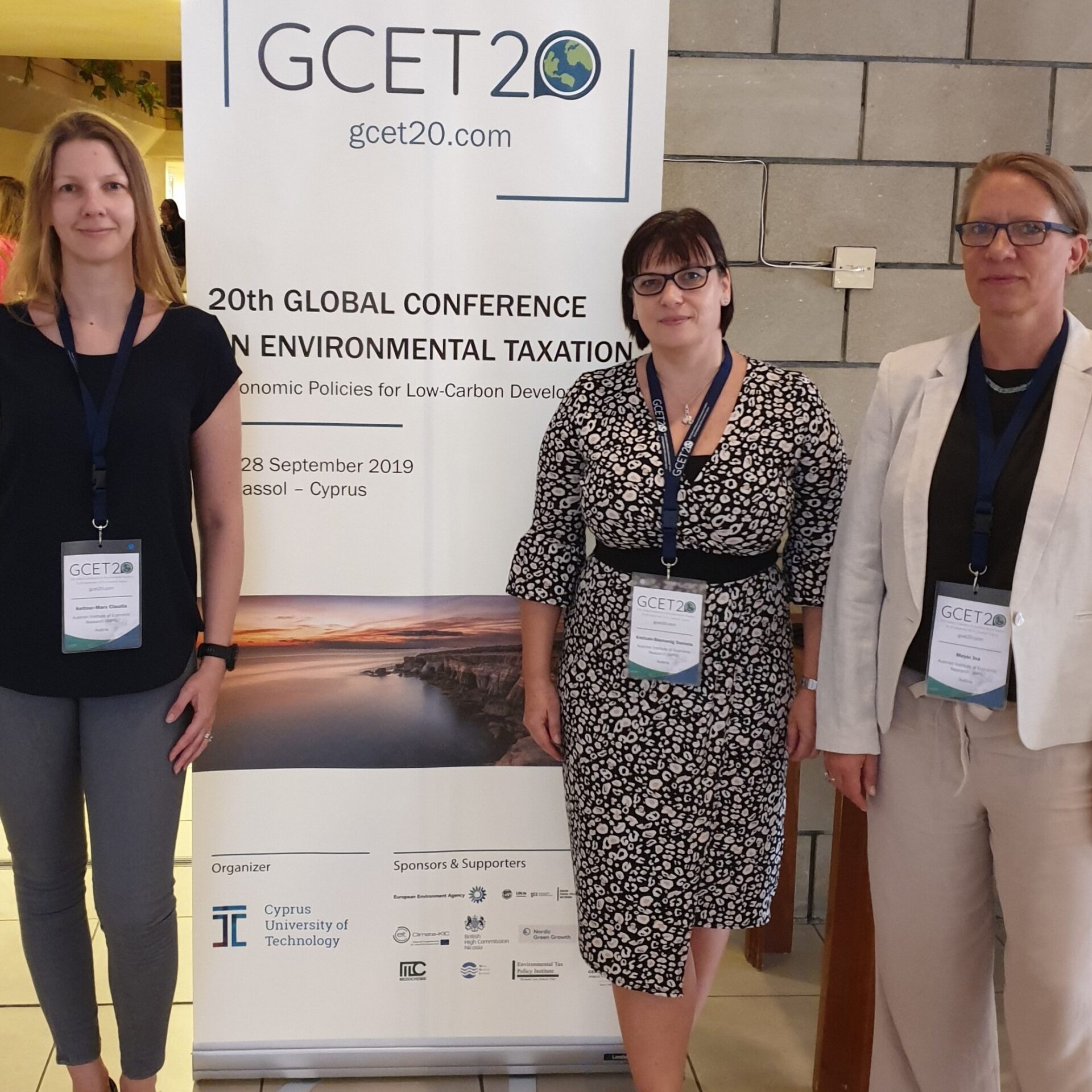
Towards a Low Carbon Future
Claudia Kettner-Marx presented an analysis of allowance transactions in the European Emissions Trading System (EU ETS). The analysis focused on how imports and exports of allowances changed since the introduction of the EU ETS in 2005. The results show that transfers have increased since 2005. However, there is no indication whether this is due to increased trading participation of installations covered by the EU ETS or due to increased participation of traders. The tighter emission cap for the next trading period starting in 2020 and measures against the surplus of allowances could further stimulate transfer activities.
In her presentation, Daniela Kletzan-Slamanig addressed the relevance of indicator systems for measuring the achievement of targets in the context of the Paris Agreement and the UN Sustainable Development Goals (UN SDGs). Of particular relevance is the analysis of synergies and trade-offs between different targets and dimensions of sustainable development. These play a central role in the design of eco- or CO2-taxes to identify and mitigate potential regressive effects. An analysis of energy and climate policy indicators in nine European countries (including Austria) shows that positive developments in the past decade have been driven primarily by the ecological dimension, above all by the expansion of renewable energies. In order to achieve the climate targets by 2050, an increase in efforts is indispensable.
Ina Meyer presented an Energy Scenario "Transition 2050" for Austria. This depicts the achievement of the Paris Agreement's climate goals, i.e. a reduction of energy-related greenhouse gas emissions by 80 to 95 percent by 2050 (relative to 1990), and their economic impacts (e.g. +1.7 percent average annual GDP growth; compared to +1.5 percent growth in GDP in the baseline) for Austria. A steeply rising price for carbon emissions (15 € per t CO2 by 2020, 40 € per t CO2 by 2030, 200 € per t CO2 by 2050) in all sectors and a worldwide collective action in the sense of the Paris Agreement's climate goals drive investments and a structural change towards energy saving, energy substitution towards renewable energies and electrification of the energy system in the model "WIFO.DYNK". Without further political measures (standards, etc.) and a positive vision of a carbon-free society that brings about changes in lifestyle and behaviour, it will not be possible to achieve these goals.
Further information: http://www.gcet20.com/



